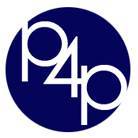First off, I'm no expert in the equipment leasing business; however, but I have some peeps that are. A few days ago I caught a thread on Linkedin reposted from @KeithHachey (Americorp Financial LLC). See the pic below.
The first item that caught my eye was the hashtag #leases and then the text at the bottom for "Impact of Senate Bill 1235 on Equipment Leases.
Of course I followed the link and it lead me to the web site for the State of California Legislative for Senate Bill 1235. Bill 1235 relates to commercial financing in the State of California and the disclosure of the following.










